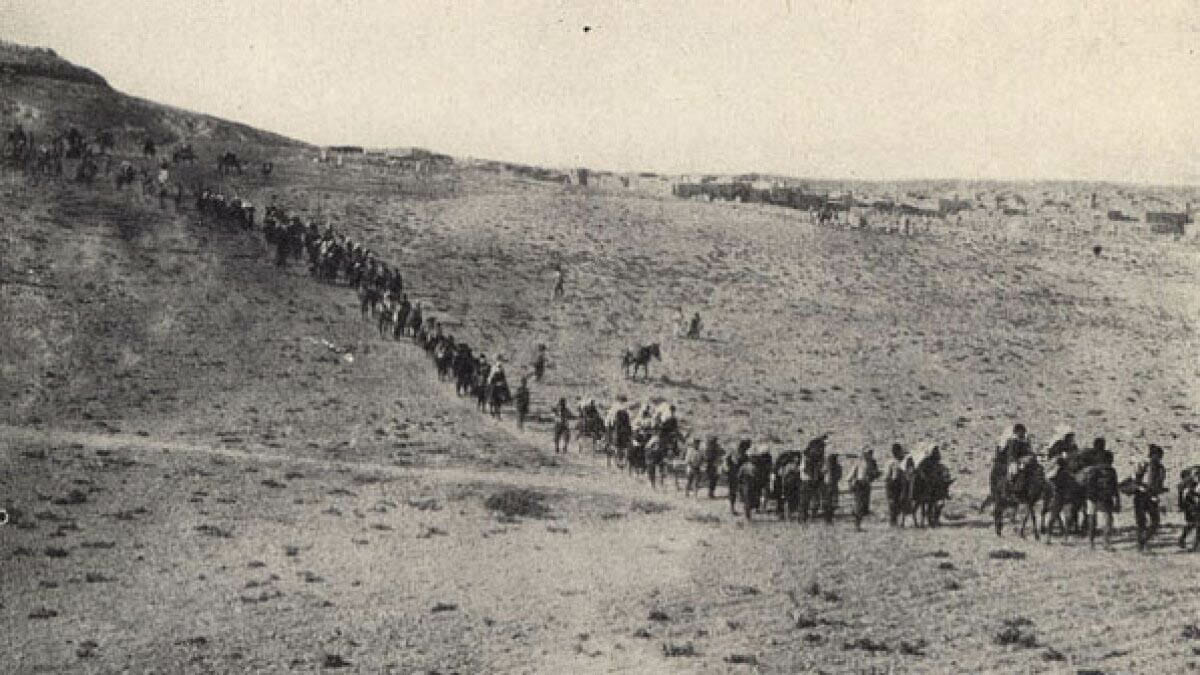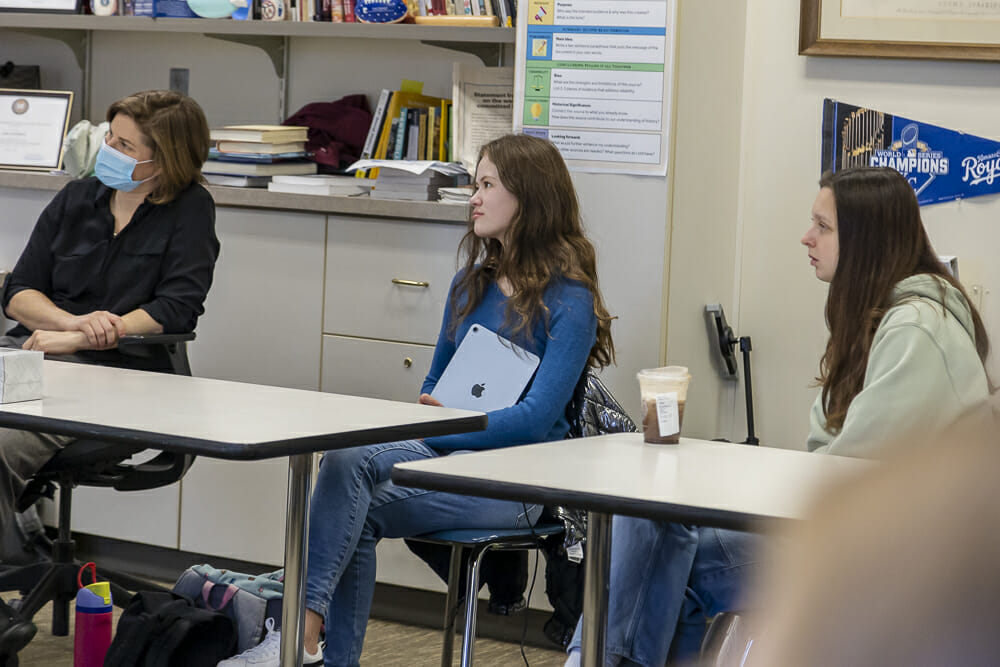
Students from our Upper School Human Rights & Genocide class and our Model United Nations club had the chance to Zoom with John Heffern, a St. Louis native and former Ambassador to Armenia on Tuesday. The class had just concluded their study of Armenia in 1915, which covered the ongoing discussion of whether or not what happened there should be labeled a genocide. They gathered in the classroom of Carla Federman, JK-12 History and Social Studies Department Chair and History Teacher, to learn about Heffern’s experience and his thoughts on genocide from a personal and political point of view.
Heffern spent nearly his entire career in foreign service and enjoyed his experiences around the globe. His father was in the foreign service before he returned to St. Louis to take over the family jewelry business, and his mother is from India. He heard a lot about their life overseas (they lived in China during World War II) while he was growing up and was intrigued. Heffern loves languages, history, and words and turned his curiosity about the world into a 36-year career in foreign service. He, his wife, and his five children lived all around the world, and he says that several of his children “got bit by the bug” as they still live overseas. From 2011 through 2014, he served as the ambassador to Armenia under President Barack Obama.
Heffern spoke at length about the genocide and the experience of the Armenians under the Ottoman Empire around the time of World War I. While he personally felt that what happened constituted a clear genocide as defined by Raphael Lemkin in 1944, he was powerless to actually call it that. He could recognize the mass deportation and killing of Armenians under the Ottoman Empire but was restricted by the State Department and his president’s administration from labeling it as genocide.
“Turkey has been an important ally, a NATO ally,” Heffern explained, “and the assumption was that calling what happened ‘genocide’ would upset the Turks.” Although it is very clear—1.5 million Armenians were massacred or marched to their deaths from 1915 to 1923—Heffern was representing the President of the United States and could not share his personal opinion. He expressed gratitude that the genocide was not successful and that Armenia—its people and its culture—survived.
As for the students in his audience, Heffern encouraged them to be active globally even if that means not joining the foreign service. He shared his personal journey, starting with graduation from Michigan State University in 1976. He knew before then that he wanted to join the foreign service, so he first took the written exam in 1975 as a test run. “I wasn’t able to actually join because I was still in college, so when I failed, I wasn’t too disappointed.” He ended up having to take the exam three more times before passing in 1982, and the wait was worth it. He used his time wisely, working for a while at a bank in St. Louis and then for John Danforth who was then serving as a U.S. senator. He encouraged interested students to apply early and often and to take different jobs in the meantime as the process can take so long that by the time one is accepted into the foreign service (security clearance can take two years, for instance), any obligations to employers would have been fulfilled. “It’s really important to have a breadth of experience,” he said. “Don’t pass up any opportunity that comes your way.” Heffern did not let three failed foreign service exams stand in the way of his dreams, showing the students that resilience, persistence, and determination (and the ability to learn from failure) would serve them well.

The students asked great questions, and Heffern responded with solid advice. “The broader your studies and interests the better you’ll do in the foreign service process,” he advised. “The more experience and broader interests and the more well-read you are, the better you’ll do,” he said. “The history of the United States is way too narrow, so be curious and interested in lots of different things.” He also mentioned that the State Department offers internships for college students; as a junior at Michigan, he enjoyed an internship stationed in Tokyo. “That’s a good testing ground to see if it’s really what you want to do.”
Thomas Woodrow ’24 enjoyed the time with Heffern. “I thought that being able to hear about this man’s experience really opened my eyes to what working for the government might be like,” he said. “It was really interesting hearing about the complexities that come along with being a diplomat dealing with a politically questionable topic. I think he brought a great modern perspective on the Armenian genocide and how it is being dealt with now.”
“I had a great time listening to Mr. Heffern,” said Zoe Zlatic ’24. “Even though I’m not too interested in pursuing foreign service as a career, it was so interesting to listen to him speak. It was a great way to take what we were learning about in the classroom and see how it impacts our nation’s leaders. I learned a lot about what it means to be an ambassador and how it’s important for them to balance individuality with the ideals and beliefs of the President. I also thought it was really cool how much he has traveled. I can only imagine how many different cultures he has learned about!”
Working for the foreign service isn’t the only way to see and experience the world. Heffern mentioned non-governmental organizations (NGOs), journalism, military service, other government agencies, and the business sector (especially if economics and trade are interests) as ways to “scratch that international itch.”
Heffern makes a compelling case for foreign service, as he’s a clear-headed and passionate advocate for representing the United States overseas. He stressed that in government services and public service, the word “service” is extremely important. “You do lose some of your independence, and you have instructions to follow. It can be tricky.” Still, anyone can see he doesn’t regret a single moment of his time spent in foreign service. As for Armenia’s history? He’s glad that President Biden, and therefore the United States, formally and officially recognized the Ottoman-era Armenian experience as a genocide in 2021.
Thank you to Ambassador Heffern for taking the time to share his experience with our students and teachers this week.












